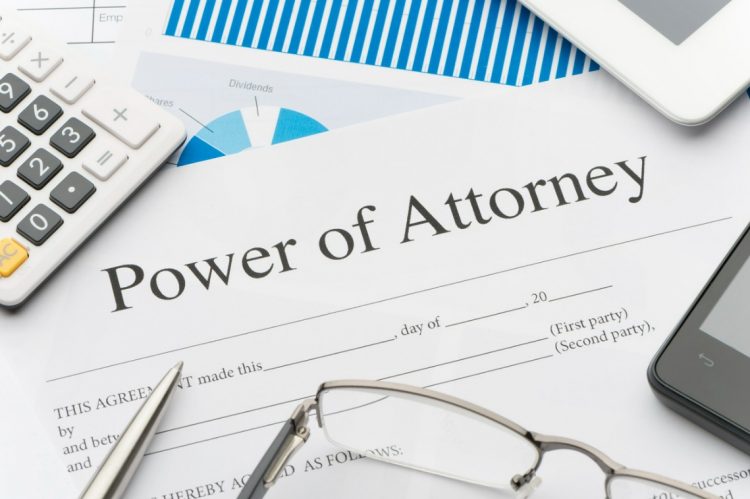Selling a property is often a complex and time-consuming process involving various legal and logistical aspects. However, what happens when you, as a homeowner, cannot handle these responsibilities personally?
This is where a power of attorney (POA) in real estate can come into play. We will examine using a power of attorney to sell a house, how it works, and when it might be a practical solution.
From experience as a REALTOR®, using a POA is quite common. My seller clients have not attended the closing of their homes for many years. Instead, their real estate attorney has gone in their place. Doing so makes perfect sense. Buyers do the bulk of the documents signed at closings. Sellers sign minimal paperwork.
Having an attorney go for them frees up their time on a hectic day, especially when concurrently buying a home.
Understanding the power of attorney in real estate:
A power of attorney is a legal document that grants someone, known as the “agent” or “attorney-in-fact,” the authority to make decisions and take actions on behalf of another person, known as the “principal.”
This document can be broad or specific in scope, and choosing a trustworthy agent when creating a POA for real estate transactions is essential. It is one of the many reasons to have a real estate attorney. Having one is worth the expense!
Why use a power of attorney to sell a house:
Selling a home with a POA can be a practical and beneficial choice under various circumstances. Let’s explore why individuals might opt for this approach:
- Health issues: One of the most common reasons for using a POA to sell a house is when the homeowner faces health challenges. If a person is physically or mentally incapacitated, they may not be able to participate in the sale process actively. In such cases, designating a trusted agent through a POA allows the sale to proceed without the homeowner’s direct involvement.
- Geographic constraints: Some homeowners may need to sell a property in a different city, state, or country. Managing a real estate transaction remotely can be challenging and time-consuming. A POA can bridge this geographic gap, enabling a real estate agent or lawyer to handle the sale efficiently.
- Travel or absence: Even if a homeowner is not permanently relocating, they may be temporarily unavailable due to travel or other commitments. Real estate transactions require timely decision-making and action. Using a POA ensures that someone can act on the homeowner’s behalf, preventing delays in the sale.
- Expertise and efficiency: Some homeowners use a POA because their designated agent possesses specialized knowledge of real estate transactions. This expertise can lead to a smoother and more efficient sale process, maximizing the property’s value and minimizing complications.
- Buying and selling same day: One of the most common uses of a real estate POA is when a seller purchases on the same day. It allows them to attend their purchase closing with less traveling stress.
Your REALTOR® is an excellent resource for finding a real estate lawyer.
Steps to using a power of attorney for selling a house
Using a power of attorney (POA) for selling a home involves a series of steps to ensure the process is legally valid and smooth.
Here are the essential steps to follow:
- Consult an attorney: Consult a real estate attorney who can guide you. They can help you draft a POA tailored to your needs and ensure it complies with local laws and regulations.
- Choose your agent: Select a trusted individual, such as a family member or close friend, to act as your agent. This person should understand your preferences well and be capable of handling real estate matters competently. As mentioned, many ask their attorney to handle the signing.
- Draft the power of attorney: Work with your attorney to create a comprehensive POA document outlining the powers granted to your agent. Ensure that it includes specific details regarding the sale of your property.
- Notarization: Many states require a POA to be notarized to be legally valid. This involves signing the document in the presence of a notary public.
- Notify relevant parties: Inform your real estate agent, title company, and any other parties that you will use a POA for the sale. Please provide them with document copies and clarify the extent of your agent’s authority.
- Monitor the process: While your agent handles the sale, communicate with them to ensure everything proceeds as planned. Your agent should keep you informed of any significant developments.
- Signing documents: Depending on the state and local regulations, you may need to sign some documents related to the sale physically. Your agent can guide you on which documents require your signature.
- Closing the deal: Your agent will oversee the closing process, ensuring all necessary paperwork is completed correctly and the property changes hands smoothly.
Final thoughts
A power of attorney to sell a property can be a practical solution in various situations where homeowners cannot handle the sale themselves. However, consulting with legal professionals and choosing a trustworthy agent is essential to ensure the process proceeds smoothly and complies with all applicable laws and regulations.
If your time is valuable, the cost is minimal. By leveraging this legal tool, you can simplify selling your home, even when you cannot be directly involved.












